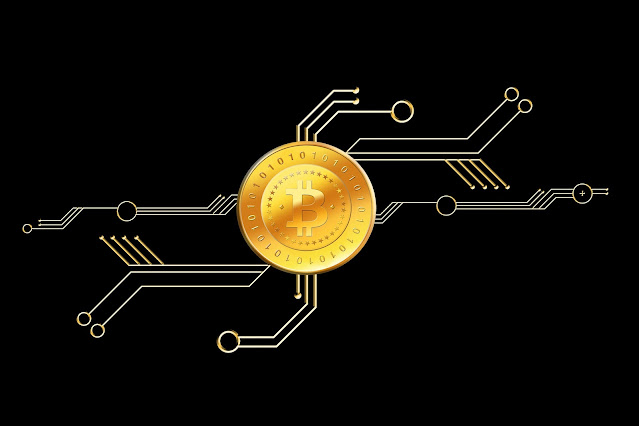
Bitcoin is a virtual software having a source code and hashing function. Satoshi Nakamoto, the inventor of bitcoin, defined bitcoin as a virtual cash system with a complete peer-to-peer network and no third parties.
In bitcoin’s white paper, Satoshi Nakamoto has explained every aspect of bitcoin alongside its technology. All the more, Satoshi Nakamoto implemented blockchain in the very first place.
Bitcoin is the utmost valuable cryptocurrency having a maximum store value. The second cryptocurrency in terms of market cap and store value is Ethereum. However, Ethereum is not merely a cryptocurrency but also a blockchain model.
Bitcoin is one of the prominent sources of income nowadays, as bitcoin trading, investing, and mining is very profitable. Click here to find out more about bitcoin trading. Despite being so valuable and widespread, many people are still unfamiliar with the basic concept of bitcoin. Here is a complete dictionary of bitcoin that can help you understand the concept of bitcoin in a much better way.
Mining
Since bitcoin is virtual and decentralized, the action of adding new bitcoins to existence is also virtual. The action of adding bitcoins to circulation is bitcoin mining. Bitcoin mining not only maintains a supply of bitcoin but also upsurges the security of the bitcoin network. To get a bitcoin unit as a reward, miners have to verify a set of transactions.
According to proof of work, if a miner has to verify the transactions, he needs to produce enough hash power to solve a math puzzle with his computer. So, in a nutshell, bitcoin miners will only avail block reward if miners solve the math puzzle in a given time.
Block Reward
Block reward of bitcoin mining is the number of bitcoin units a miner avails after verifying a set of transactions. However, the block reward of mining is not permanent, and it keeps changing after four years. Block reward of bitcoin mining at the instance is 6.25 units with the transaction cost.
Bitcoin Halving
As mentioned ahead, the block reward of mining is not permanent, and it keeps changing after four years. Bitcoin halving is the event that declines the block reward of bitcoin mining after four years. Once bitcoin miners mine 210000 blocks, block reward halving takes place.
The first-ever bitcoin halving took place in 2012, and the bitcoin mining block reward after the first-ever bitcoin halving was 25 units. However, after the recent halving, bitcoin mining’s block reward is 6.25 units with the transaction cost. Thus, bitcoin halving correspondingly impacts the store value of bitcoin to an exceeding extent.
Blockchain
Blockchain is one of the utmost important aspects of the bitcoin complex. Blockchain as a unique technology is correspondingly acquiring an exceeding extent of popularity. Blockchain is a public distributed ledger that stores information regarding bitcoin transactions.
Miner broadcasts them to the public ledger. The current size of bitcoin’s blockchain is 350 gigabytes. In addition, blockchain has some robust features such as anonymity, transparency, and immutability.
Block
Block is a minor part of the blockchain. Block contains information regarding bitcoin transactions in the form of a hashing function. Every block on the Bitcoin blockchain has two headers; the first header contains information like the timestamp of bitcoin transactions, a summary of the transaction, nonce value, and the difficulty of that explicit transaction.
The second header of each block contains a cryptographic hash function. The size of each block on the blockchain is one megabyte, and miners get 10 minutes to form a block.
Peer to Peer Network
Peer to peer network assists bitcoin in showing decentralization traits. The peer-to-peer network of bitcoin has many nodes that ensure decentralized transactions between the sender and receiver. The number of nodes in the bitcoin complex is more than 10000. However, a peer-to-peer network does not ensure the existence of any node in any possible way, and if a node stops working, the peer-to-peer network will still work. You can run your computer as a node on the peer-to-peer network of bitcoin. Bear in mind that there are no monetary rewards of running as a node on the peer-to-peer network of bitcoin.
These are some of the essential terms related to bitcoin.
